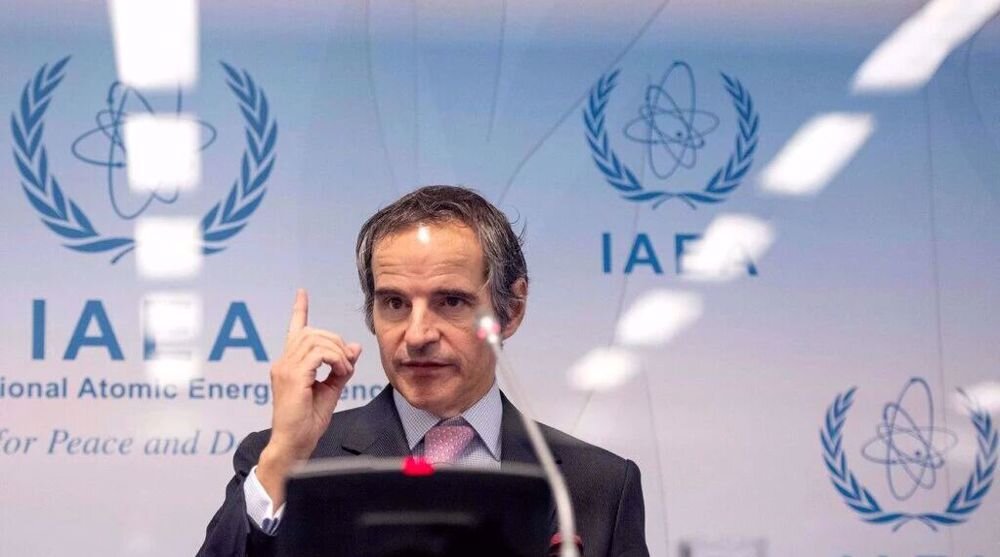Tehran demands IAEA to uphold impartiality, objectivity

TEHRAN - The Permanent Mission of Iran to the United Nations Office and other international organizations in Vienna has urged the UN nuclear watchdog to maintain objectivity in its reports related to Iran’s nuclear activities.
The request was made in an explanation note dated March 5, 2024, that was sent to the International Atomic Energy Agency (IAEA) and made public to the media on Tuesday.
The note came in response to reports submitted to the IAEA Board of Governors on February 24 by IAEA Director General Rafael Grossi on verification and monitoring of Iran’s nuclear activities and on the Non-Proliferation Treaty Safeguards Agreement with Tehran.
“The Islamic Republic of Iran rightfully expects that the Agency conducts its reporting on verification activities in Iran based on the principles of impartiality, professionalism, and objectivity,” said the note in response to claims in Grossi’s reports that Tehran had not cooperated with the IAEA on verification issues.
It stated that Iran “has done its utmost to enable the Agency to effectively carry out its verification activities in Iran” and that the nation has completely fulfilled all its commitments, including those under the Comprehensive Safeguards Agreement.
It also censured Grossi for failing to appropriately segregate topics in the two reports that were presented to the Board of Governors. These reports included topics about the 2015 Iran nuclear agreement (JCPOA) and NPT Safeguards.
“As an example, verification and monitoring activities related to the manufacture of centrifuges rotor tubes and bellows, which are defined in the scope of [the] JCPOA, should not be reported under the NPT Safeguards Agreement Agenda Item,” it stressed.
Tehran’s UN mission stated that Iran stopped voluntary transparent measures in response to the U.S. illegal pullout from the JCPOA in May 2018 and a failure by the European signatories to the deal to honor their end of the bargain.
Back in February, in a report published by The Associated Press, Grossi said Iran is not showing transparency regarding its nuclear program.
Speaking at the prestigious World Governments Summit in Dubai, he also emphasized that Iran’s disclosures are insufficient.
Grossi said Iran is “presenting a face which is not entirely transparent when it comes to its nuclear activities. Of course, this increases dangers."
Grossi's remarks followed a significant statement from Ali Akbar Salehi, the former head of Iran’s Atomic Energy Organization, who asserted the Islamic Republic’s capability in nuclear endeavors.
Salehi’s words, coupled with Grossi’s concerns, underscore a critical juncture in international nuclear diplomacy.
Grossi’s allegations come while Iran as a signatory to the NPT has been committed to granting the IAEA access to its nuclear facilities, a move aimed at verifying the peaceful nature of its program.
In the same month, the UN nuclear watchdog issued a report alleging that Iran’s stock of uranium has shrunk.
The report purportedly said that the stockpile has dwindled below the theoretical threshold at which it could produce three atom bombs.
According to two confidential quarterly reports to member states, the IAEA said in the report that Tehran has diluted its enriched stockpile more than it produced over the last three months.
Surprisingly, the IAEA failed to cast light on the reasons for the so-called downblending of 31.8 kg of material enriched to up to 60%, after which the stock fell by an estimated 6.8 kg since the last such quarterly reports to 121.5 kg.
A top diplomat, familiar with the issue, said, “At the beginning of the year they decided to do a downblending ... A couple of weeks later they did another downblending, this time with a smaller amount.”
The diplomat claimed that “Iran slowed its enrichment of uranium to up to 60% purity last year which was probably the result of secret talks between Washington and Tehran that led to the release of U.S. citizens held in Iran.”
The Iranian officials have invariably denied all bogus allegations leveled by certain Western powers to pin the blame on Tehran.
Leave a Comment